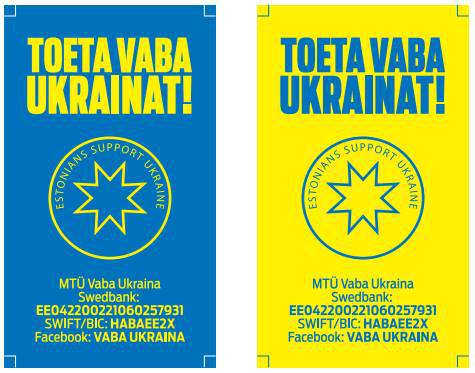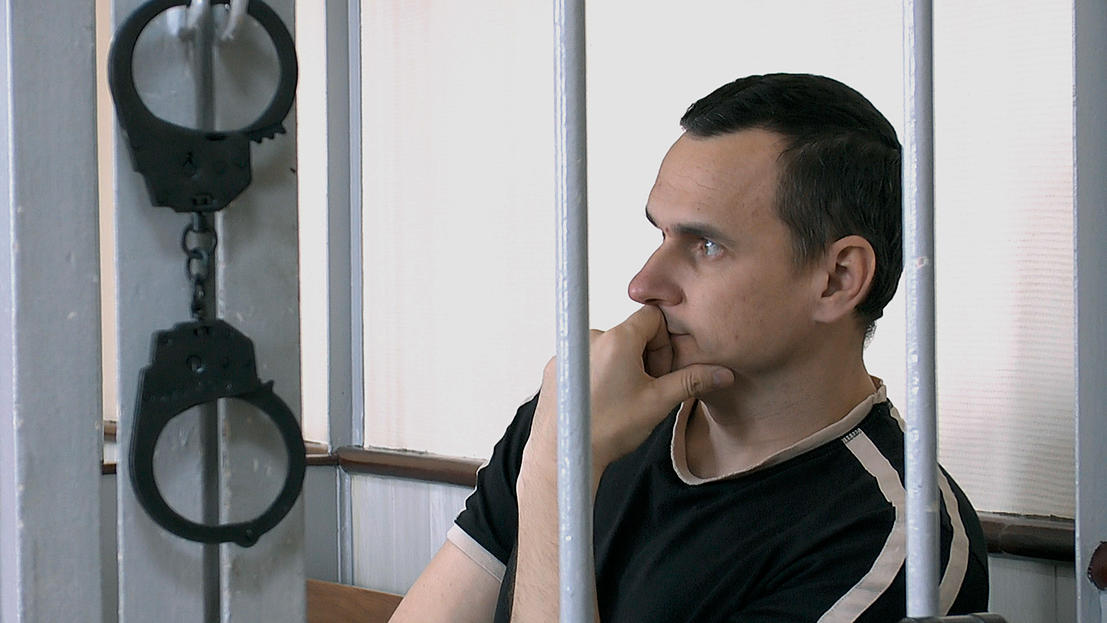Little things may sometimes make a difference. The following is an interview with Kuido Külm and Andrus Rumm, two Estonians, founders of the NGO Vaba Ukraina (“Free Ukraine”), an ever-growing organization dedicated to providing Ukrainian volunteer battalions with field medical supplies. The all-important (and in Ukraine, much sought-after) little things that save soldiers' lives.
Did you have any previous ties with Ukraine?
KK: I served in the Soviet army back in 1988-1989 at the bases in Poltava and Lviv. Not much since then.
AR: I lived in Ukraine for about a year when I was six, having my asthma treated. Found some friends there who I've been communicating with ever since.
And how did you come up with the idea of shipping medical supplies?
KK: After the invasion of Crimea, it looked like the rest of the world was just going to sit back and watch. So I thought, maybe I could do something useful. So I browsed the Internet and found on Facebook a request for field medics’ backpacks. Contacted them, in reply I was asked how many I could provide. So I took the dive and promised five. Threw in some of my own money, raised some more through a web forum, where I also met Andrus for the first time, he was about to buy a batch of tourniquets. That's how our cooperation began.
AR: Someone was offering tourniquets over the forum really cheap, don't know where he's gotten them from, anyway I bought the lot. I was thinking I would throw in some stuff and then ship it off to Ukraine. That's when I met Kuido. And that's when we started openly raising money. It was amazing, at first we only had our personal accounts, think of the risks – and nevertheless people dared, money started to flow in.
KK: We sent out invitations, more activists gathered, someone proposed we should register as a non-profit organization, so we did. The money we use comes from donations. I remember there was a woman with 90% disability, she donated 5 Euros...
AR: I had a woman who won 250 Euros in a lottery, she donated it all to us. Then there was Enn Gross, who traveled to Finland to buy 50 FEB9 bandages on his own expense and then came to Tallinn to hand them over to me personally along with a box of chocolate bars, all in all for about 500 Euros. It's all so touching.
KK: Some write to us they will not buy any more beer, instead donate the money to us, healthier for them as well.
What is the usual procedure like?
KK: We have searched the Internet, Facebook etc. For contacts and through them further ones. For instance, there was this girl from Zaporizhya, who wrote to us, thanked us for what we do, so we asked, could she deliver some supplies herself? And there is this doctor-instructor of Kyivska Rus-11 Battalion we can discuss necessities with.
AR: At the beginning there was much talk about Donbas Battalion on the news, it was said they were taking heavy casualties, so I decided to send our first batch to them. Contacted through their Facebook, made some arrangements through my friend in Kyiv. That delivery chain is still operational.
So it's not, like, they send you a list, you piece the stuff together....
KK: Sometimes, but not very often
AR: Usually they don't even know what to wish for. They do not know what is used in a NATO army to keep men alive, mostly what they have is Soviet-era stuff, thus we also have to teach them. Ukraine's army is large in theory, but they have not ever thought about really having to fight someone, to treat and transport the wounded, they have just one paramedic per 40 men. Soldier's first aid training is next to nonexistent, as opposed to Estonia, where every single soldier is trained to keep wounded alive, then there's squad combat medic, followed by platoon paramedic etc. In Ukraine, between soldier and platoon paramedic there's a big gap. Wounded soldiers simply can't reach lifesaving help in time. We have had to describe things we send them, forward manuals, educational videos, to explain Ukrainian paramedics what this or that exactly is for and how it is meant to be used. Then they just catch it on the fly though, they're bright guys there.
As I understand you put the batch together and deliver it along with the manual, what to do with it?
KK: All in all, I think we have a pretty good understanding what they need by now.
AR: What was truly shocking for me was that Ukrainian paramedics still use old-school rubber tourniquets that, when wet or bloody, turn incredibly slippery, and when you force it on, absolutely nothing gets through, inducing sepsis, so amputation of a limb often remains the only solution to save a life. Contemporary Western tourniquet allows for regulation of tension and blood-flow. NATO soldiers learn to apply a tourniquet in 20 seconds or less, with this old rubber one it takes that much time just to untangle it.
KK: We're pushing through a project, on a government level, to start training instructors for Ukraine's paramedics. We're not there yet, but that could be something tiny Estonia's know-how might create a great impact with.
How many units have already received their packages?
AR: About 15 units by now – Donbas, Aidar, Omega, Azov, 30th and 72th brigade...
KK: Volunteer groups claim they have compiled about 7,000 IFAKs (Individual First Aid Kits) that meet western standards, but there's still a huge shortage of them. Our last batch also included 25 IFAKs.
Last question: will Ukraine win and if yes, when?
KK: Absolutely. At least Ukraine will secure its independence.
AR: Tactically, territorially may lose some, but strategically, in the end, Ukraine will win.
KK: We can announce victory when Crimea is reunited.
AR: I think the war will go on until next summer.
KK: I believe about next summer at the latest Russia will simply run out of money. The months to come will not be easy on Ukrainians, but they're standing on their land, and they have got their indomitable spirit Russians will not be able to break. We believe next year Ukrainians will have their victory. Until then we too will carry on with our current operation.






